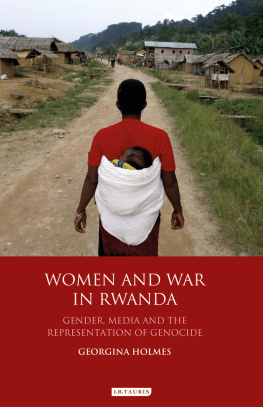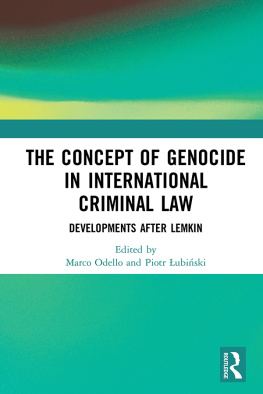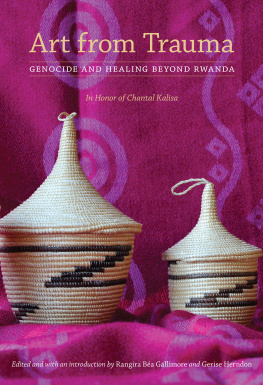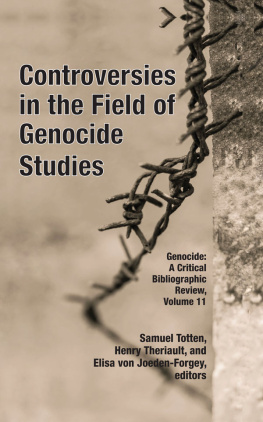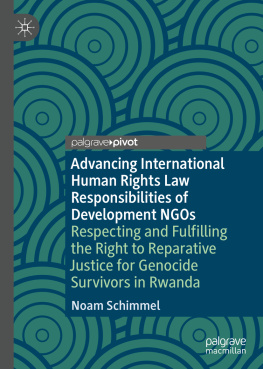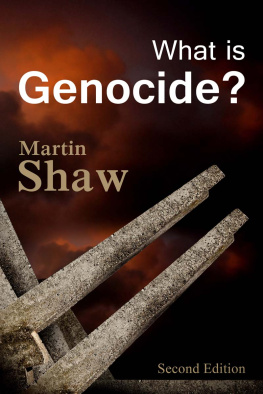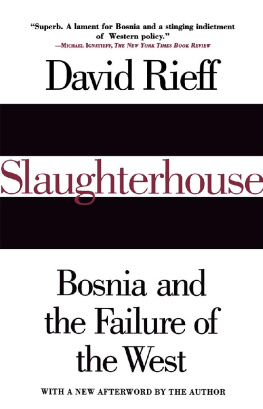This empirically rich and conceptually sophisticated study is essential reading for anyone interested in media responses to genocide and mass violence.
Professor Adrian Bingham, University of Sheffield
David Patrick has written a path-breaking account of how genocidal mass violence was publicised and framed by Western media. Focusing on the Holocaust, Bosnia (19925), and Rwanda (1994), he examines the ways in which the Anglo-American press reported on three different instances of genocide, and what this tells us about Western attitudes to mass violence. Prominent among the findings of this erudite and measured study is how coverage of the Bosnian and Rwandan genocides was skewed towards the former. Acknowledging Derrida, Patrick too concludes that the dead are counted differently from one corner of the globe to the other. Crucially, Reporting Genocide identifies a process of desensitisation towards human suffering. Reports and images that shocked the world in 1945 had 50 years later become merely one item among many in the Western news media.
Ian Phiminster, Senior Research Professor, University of the Free State
This is an urgent and provocative intervention into discussions of how genocide is reported. In concentrating on events in Bosnia and Rwanda, Patrick identifies strands of continuity within media representations across historical eras. The rigour of the books textual explorations shakes us out of complacent views of Anglo-American newspapers as benignly liberal, demanding that our news media engage more systematically beyond their all-too-narrow presuppositions and frames of reference if they are to provide truly authoritative context in our troubled times.
Professor Martin Conboy, University of Sheffield
Published in 2018 by
I.B.Tauris & Co. Ltd
London New York
www.ibtauris.com
Copyright 2018 David Patrick
The right of David Patrick to be identified as the author of this work has been asserted by the author in accordance with the Copyright, Designs and Patents Act 1988.
All rights reserved. Except for brief quotations in a review, this book, or any part thereof, may not be reproduced, stored in or introduced into a retrieval system, or transmitted, in any form or by any means, electronic, mechanical, photocopying, recording or otherwise, without the prior written permission of the publisher.
References to websites were correct at the time of writing.
ISBN: 978 1 78453 722 7
eISBN: 978 1 78672 293 5
ePDF: 978 1 78673 293 4
A full CIP record for this book is available from the British Library
A full CIP record is available from the Library of Congress
Library of Congress Catalog Card Number: available
Acknowledgments
There are a number of people who have influenced the various versions of this book, and I extend my genuine thanks to each and every one of them for their respective inputs and suggestions. I am grateful to my former supervisor, Juergen Zimmerer, for first taking on the responsibilities of my PhD proposal. His early guidance, regarding choice of sources and overall structure, greatly influenced this project. There are several other people from my time at the University of Sheffield whom I would like thank for their help in the production of this research. Beky Hasnip and James Pearson were a source of technical support whenever I needed them, and this was a huge help on countless occasions. To Matt Carnell and Mark Seddon, I extend my appreciation for their comments on very early aspects of this work, and for their numerous suggestions regarding relevant literature. I would also like to thank Henning Pieper and Jennifer Pahmeyer, both of whom were invaluable in providing me with a source of discussion and specialist critique of my early research. To Alex White, I extend my sincere gratitude for his help in informing the legal aspects of the original thesis. A special debt of gratitude is reserved for Umit Ungor and Gerold Krozewski, whose support, encouragement and suggestions are most genuinely appreciated. Their respective expertise helped to underpin many of the key concepts which initially informed this study, and were thus highly influential in what this book eventually became. I am also sincerely grateful to Adrian Gallagher, for his guidance and suggestions at every stage of this project. To Paul Behrens, I extend my genuine thanks for his help with early drafts of the chapter on Rwanda, and for his subsequent advice on the larger themes of this work. I would also like to thank Linda Melvern, who provided a series of excellent suggestions regarding Rwanda in the early stages of this research. Special thanks go to Sir Martin Gilbert, who discussed this work with me when it was in its infancy, and who was most welcoming when I travelled to London. To Tim Cole, Hannah Holtschneider and Jolyon Mitchell, I am grateful for their input and advice particularly on the more theoretical aspects of the project in the early days of my PhD. I am also very grateful to Ben Shepherd, for his advice on sections relating to the German military, and to Chris Nottingham, whose encouragement and support was enormously appreciated when I first began to consider the main ideas of this project. To James Smith, I am most thankful for him allowing me to frequently discuss various ideas, and for sharing his advice on a number of occasions. I extend a most sincere thanks to Martin Conboy and Mark Levene, who were integral in the completion of this initial research. Their suggestions and support during the final days of my PhD were invaluable, and the production of this book would have been impossible without their respective inputs. I owe a particular debt of gratitude to Adrian Bingham, who helped immeasurably in this overall project. His suggestions in terms of both sources and methodology were invaluable, as was his general guidance throughout my PhD. To Ian Phimister, I extend my most sincere and genuine gratitude, for his endless support across the duration of this project. In the production of both this book and the thesis upon which it is based, his encouragement, advice, patience, expertise and support have been enormously appreciated; and without his influence this book would not have been possible. To my colleagues at the International Studies Group, I extend my gratitude for providing me with various forums to discuss and present my work. Suggestions regarding literature and theoretical standpoints have been most welcome, as has the provision of a department which it is a pleasure to be a part of. Special thanks go to Kate Law, Andy Cohen and Helen Garnett; all of whom have assisted the production of this research, in some manner or another. I am also indebted to Jack Hogan, whose assistance with the final stages of this book was vital. His help with proofing, structure and expression are all hugely appreciated. To the staff at the (former) Colindale archives, I extend my gratitude for making the frequent trips there both productive and enjoyable. Similarly, I thank the specialist staff of the Mitchell Library (Glasgow), for all their help and assistance at various times during this project. I extend special thanks to Tomasz Hoskins, Arub Ahmed and all their colleagues at I.B.Tauris. The process of producing this book has been made much more manageable by their professionalism, patience and general assistance. To the anonymous reviewer of the original manuscript, I am indebted to the various suggestions regarding content and structure; many of which have contributed to a much more focused monograph. To Mark Cameron, Alex Blair, Alex McMurdo, John Millar, Paul Black, Stuart MacMillan, Scott Muldoon, Stuart Latimer, Allan Muirhead, Adam Copeland and Derek Law, I am grateful for their patience in letting me discuss this work at various times, and for providing the social distraction which such research necessitates. To Tamsin de la Harpe, I extend my appreciation for her support and understanding throughout the creation of this monograph. I am greatly thankful to my grandmother, Janet Tully, for her endless support and encouragement throughout the years. To my father, Steven Patrick, I extend my sincere gratitude for all his help and assistance over the course of this research. Finally, I extend a most special note of appreciation to my mother, Margaret Patrick, whose unwavering support, assistance and encouragement has been a constant source of strength; throughout the duration of this project, and beyond.


